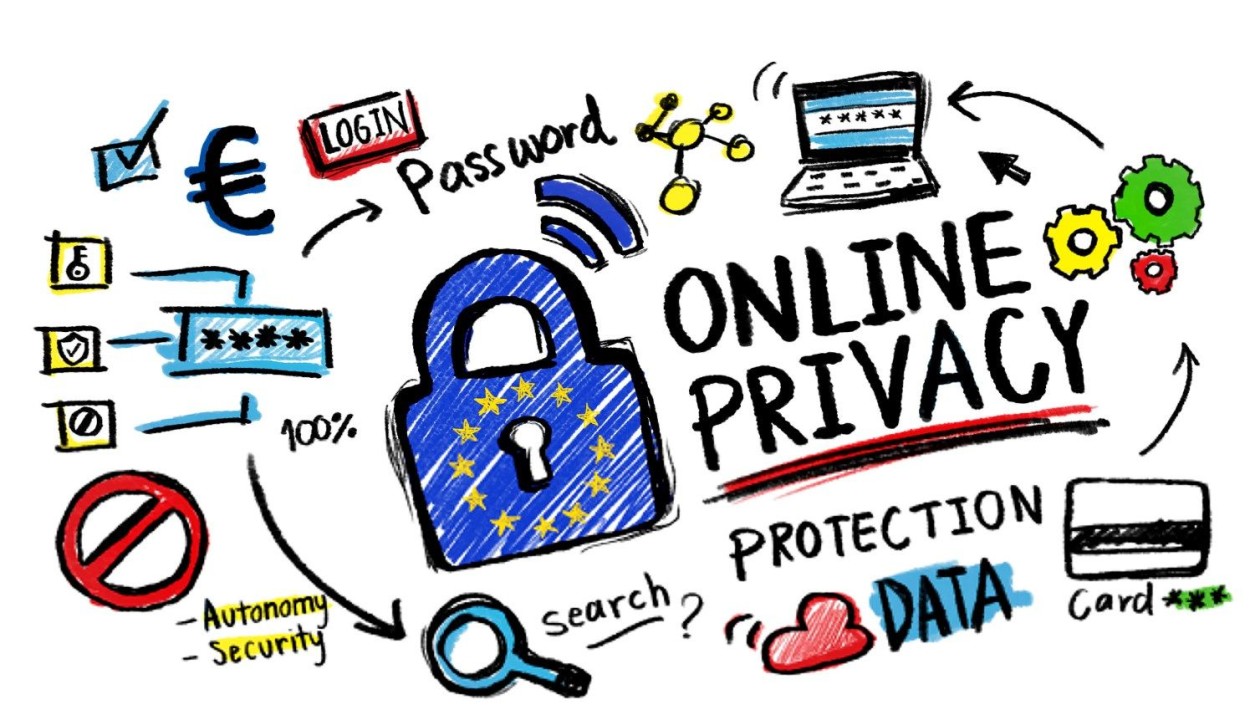1. Digital Privacy
Digital privacy refers to the protection of personal information in online interactions. With more people using the internet for work, shopping, and socializing, digital privacy is a growing concern. Protecting personal data online prevents misuse and ensures user safety. A single data breach can expose sensitive information, leading to identity theft or financial loss. Understanding digital privacy helps users make informed choices and manage how much information they share online. This article covers the essentials of digital privacy and provides tips on safeguarding your data in today’s interconnected world.
2. Why Digital Privacy Matters Today
In an era of widespread internet use, digital privacy is critical for individuals and organizations alike. Every click, purchase, and social media interaction creates data that companies collect. While some of this data enables smoother online experiences, it can also be misused if not protected. Digital privacy is crucial to prevent unauthorized access, maintain trust, and protect freedom of expression. Individuals must recognize the importance of digital privacy to make smart choices about their online activity and who has access to their data.
3. Key Threats to Digital Privacy
Several factors endanger digital privacy, including cyberattacks, tracking, and data breaches. Hackers target social media, online banking, and e-commerce sites to access personal information. Websites track browsing behavior to collect data about user interests, which can feel invasive. Additionally, data breaches put millions at risk, as companies holding personal information become prime targets. Recognizing these risks is the first step to managing personal privacy effectively. Learning about potential threats encourages individuals to adopt proactive security habits, like creating strong passwords and limiting data-sharing with untrustworthy sources.
4. Privacy Laws in the USA: An Overview
In the USA, digital privacy laws aim to protect personal data from misuse by corporations and government bodies. Legislation like the California Consumer Privacy Act (CCPA) grants consumers control over their data, mandating companies to disclose data collection practices. The Health Insurance Portability and Accountability Act (HIPAA) also protects health data from unauthorized access. Despite these protections, US privacy laws vary by state, creating a complex legal landscape. Staying informed about local privacy laws can help users better understand their rights and what actions to take if they believe their privacy has been compromised.
5. How Companies Use Your Data
Companies gather vast amounts of data through cookies, web analytics, and user accounts. This data helps them understand customer behavior, improve services, and target ads effectively. However, not all companies are transparent about how they collect and use this data. Some even sell user data to third parties without permission. Understanding these practices allows individuals to make informed choices, such as adjusting privacy settings or using alternative services. This knowledge empowers users to control who has access to their information and limits exposure to potential misuse.
6. Tips for Enhancing Digital Privacy
Protecting digital privacy starts with small, actionable steps. First, regularly update software and use antivirus tools to prevent cyberattacks. Choose strong, unique passwords and enable two-factor authentication where possible. Using a Virtual Private Network (VPN) can also hide your IP address and protect browsing activity. Be mindful of what you share on social media, as information like your location or workplace can be exploited. These simple changes add an extra layer of security to daily online interactions and help keep personal data safe from prying eyes.
7. The Role of Encryption in Privacy Protection
Encryption transforms data into unreadable text, making it harder for unauthorized users to access. Many online services, from banking apps to messaging platforms, use encryption to protect sensitive information. While encryption is essential for online security, not all websites and services provide it. To verify encryption, look for HTTPS in a site’s URL, which signals that data sent to and from the website is encrypted. Adopting encrypted services whenever possible can greatly reduce privacy risks, keeping personal and financial information secure even if a site or app is compromised.
8. Protecting Digital Privacy on Social Media
Social media is a major avenue for data collection, with platforms tracking everything from likes to personal messages. Users can protect their digital privacy by adjusting privacy settings, avoiding oversharing, and being cautious with third-party apps connected to accounts. Limiting visible information—like phone numbers, location, and employment details—reduces exposure to potential breaches. Additionally, regularly reviewing app permissions and unlinking unnecessary integrations strengthens account security. These steps allow users to enjoy social media benefits without compromising privacy and security.
9. Future of Digital Privacy
As technology evolves, so do challenges to digital privacy. Innovations like artificial intelligence, the Internet of Things (IoT), and facial recognition raise new privacy concerns, as they gather extensive personal data. The future of digital privacy depends on regulatory advancements and technology companies prioritizing user data protection. Increased public awareness and advocacy will also play a significant role in shaping future privacy protections. By staying informed and demanding transparency, individuals can influence policies and practices to create a safer digital environment for everyone.
10. Final Thoughts on Digital Privacy
Digital privacy is fundamental in today’s online ecosystem, impacting personal freedom, security, and trust. While it’s impossible to guarantee complete privacy online, taking proactive steps can significantly reduce risks. Whether through privacy settings, encryption, or mindful data-sharing, individuals hold the power to control their online presence. Prioritizing digital privacy not only safeguards personal information but also fosters a healthier relationship with technology. By remaining vigilant and informed, everyone can enjoy the benefits of the digital age without sacrificing their right to privacy.

